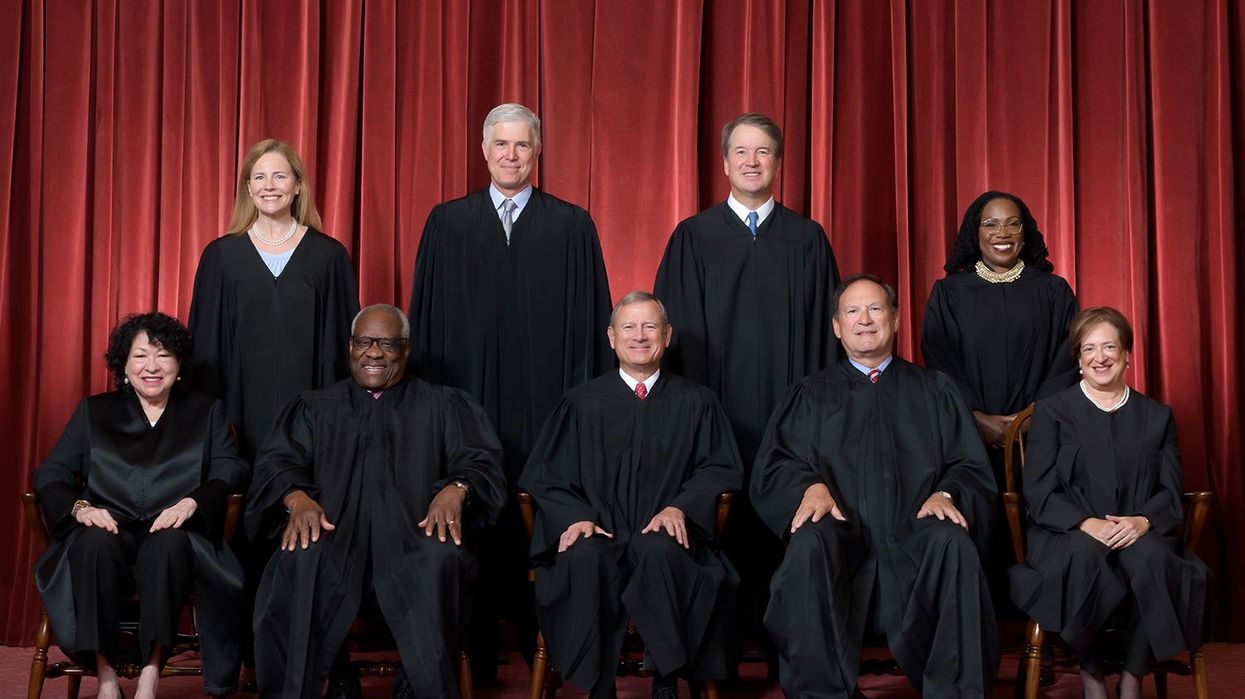Why the Supreme Court affirmative action rulings make a case for abolishing the Electoral College


On Thursday, June 29, 2023, the U.S. Supreme Court disavowed decades of precedent when it struck down the use of affirmative action in college admissions in two companion cases: Students for Fair Admissions v. Harvard College and Students for Fair Admissions v. University of North Carolina.
The UNC case was a 6-3 ruling, with all six of the High Court's GOP-appointed justices declaring that race could no longer be a factor in college admissions decisions. The Harvard case, however, was 6-2 because Justice Ketanji Brown Jackson — a graduate of Harvard Law School — recused herself.
Countless liberals and progressives have been vehemently attacking the Court's Students for Fair Admissions rulings, while conservatives and liberals have been arguing that the justices struck down a form of racial discrimination. And one argument on the left is that if the justices oppose affirmative action in college admissions, it's time to abolish the ultimate form of affirmative action: the Electoral College.
READ MORE: Critics warn 2024 will be 'Dems vs. 6 GOP members' of SCOTUS after affirmative action ruling
Progressive Rep. Alexandria Ocasio-Cortez (D-New York), a self-described "democratic socialist" and close ally of Sen. Bernie Sanders (I-Vermont), has long been highly critical of the GOP's stand against affirmative action — which she views as hypocritical in light of two things: (1) many on the right have no problem with legacy admissions on college campuses, and (2) the same conservatives who oppose affirmative action in college admissions defend "electoral affirmative action" in the form of the Electoral College.
In a scathing tweet posted after the Students for Fair Admissions rulings were handed down, AOC posted, "If SCOTUS was serious about their ludicrous 'colorblindness' claims, they would have abolished legacy admissions, aka affirmative action for the privileged. 70% of Harvard’s legacy applicants are white. SCOTUS didn't touch that - which would have impacted them and their patrons."
Author Samuel Perry, on June 29, tweeted, "Since #SCOTUS is keen on getting rid of affirmative action, think they're open to getting rid of the electoral college? Since it's affirmative action for rural whites?"
AOC didn't mention the Electoral College in her June 29 tweet, but in the past, she has emphasized that the Electoral College is a form of affirmative action for rural whites.
READ MORE: Is the Supreme Court finally accepting reality?
The Students for Fair Admissions rulings overturn, in essence, High Court rulings going back to the 1970s. In 1978's Regents of the University of California v. Bakke decision, the High Court ruled that affirmative action was constitutional but that rigid racial quotas were not. Many liberals and progressives have since argued that affirmative action isn't about quotas — it is about leveling the playing field for women and people of color, and is meant to be a hand up but not a handout.
Conservatives have often used leveling-the-playing-field arguments to defend the Electoral College, arguing that without it, small rural states would be at a major disadvantage in presidential elections — and that abolishing the Electoral College would give densely populated urban areas an unfair advantage. Republicans have lost the popular vote in seven of the United States' last eight presidential elections, and two Republicans have won the electoral vote despite losing the popular vote: George W. Bush in 2000 and Donald Trump in 2016.
Conservative Electoral College defenders who oppose affirmative action have argued that the two are not comparable because while affirmative action takes into consideration race and gender, the Electoral College is strictly about location. But in an article published by Vox on December 17, 2016, journalists Andrew Gelman and Pierre-Antoine Kremp emphasized that because of the Electoral College, white voters are overrepresented in presidential elections.
Gelman and Kremp noted, "The Electoral College isn’t just a goofy way of cumulating votes that sometimes grants the presidency to the person who gets fewer votes. It also motivates candidates to aim for the segments of voters who are overrepresented in swing states. In 2016, this implied a greater focus on whites, which affected the campaign and may have far-reaching implications on politics and policy."
Similar arguments were made by journalist William Spivey in an article published by Medium on November 14, 2020 and headlined "The Electoral College: Affirmative Action For White People." Spivey noted that the Electoral College "doesn’t serve all white people" but gave southern states "a permanent overrepresentation."
In 2019, AOC and Rep. Dan Crenshaw (R-Texas) debated the merits of the Electoral College on Twitter. AOC attacked the Electoral College as "electoral affirmative action," while Crenshaw defended it and posted, "We live in a republic, which means 51 percent of the population doesn't get to boss around the other 49 percent."
Journalist Robert M. Alexander, in an op-ed published by CNN on August 29, 2019, argued that AOC had a valid point and wrote, "The Electoral College process can lead to outcomes where the 46 percent may look to boss around the remaining 54 percent."
On June 29, 2023, Crenshaw applauded the High Court's Students For Fair Admissions rulings and tweeted, "Affirmative action = unconstitutional. Justice Clarence Thomas got it right." Crenshaw rejects level-playing-field arguments when used in support of affirmative action but uses them in defense of the Electoral College.
In 2019, AOC told Crenshaw, "We do not give electoral affirmative action to any other group in America. Do Black Americans have their votes count more bc they have been disenfranchised for 100s of years? Do Reservations get an electoral vote? Does Puerto Rico and US territories get them? No. They don’t…. The Electoral College isn’t about fairness at all; it’s about empowering some voters over others."